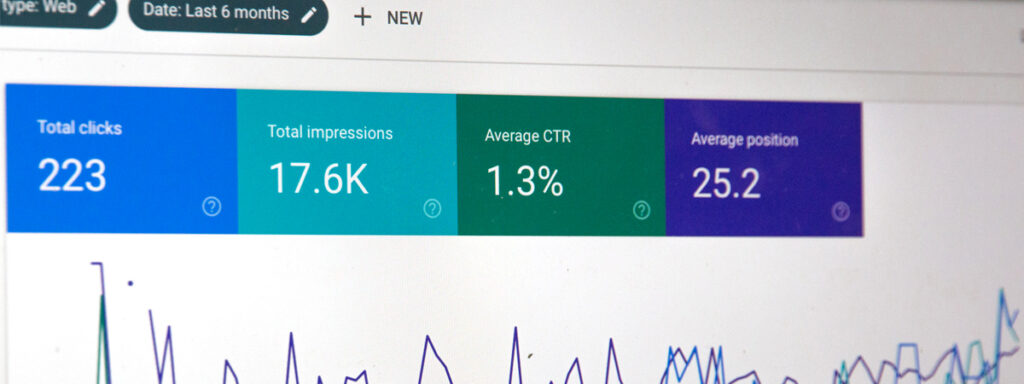In today’s digital landscape, having a strong online presence is crucial for businesses and individuals alike. With millions of websites competing for attention, it’s important to ensure that your website stands out from the crowd. This is where search engine optimization (SEO) comes into play. By optimizing your website, you can improve its visibility on search engine results pages (SERPs) and drive organic traffic to your site.
However, SEO can often seem like a daunting task, with its ever-changing algorithms and technical jargon.
In this post, I will demystify the world of SEO and provide you with practical strategies and best practices to optimize your website effectively.
Let’s dive in!
Table of Contents
Understanding SEO

Before we delve into the optimization techniques, it’s essential to grasp the fundamentals of SEO.
Search engine optimization is the process of improving your website’s visibility on search engine results pages through organic (non-paid) search results.
The goal is to drive relevant traffic to your website and enhance its ranking on search engines like Google, Bing, and Yahoo.
Key Components of SEO
Keyword Research:
Keywords play a crucial role in SEO. These are the words or phrases that users type into search engines when looking for information.
Conduct thorough keyword research to identify the terms your target audience is using to find products or services related to your website.
Tools like Google Keyword Planner, SEMrush, and Moz Keyword Explorer can assist you in discovering relevant keywords.
On-Page Optimization:
On-page optimization involves optimizing the content and HTML source code of your website’s individual pages. Here are some key aspects to consider:
- Title Tags: Ensure that each page has a unique and descriptive title tag containing relevant keywords.
- Meta Descriptions: Write compelling meta descriptions that summarize the page’s content and entice users to click.
- Heading Tags: Use heading tags (H1, H2, H3, etc.) to structure your content and include keywords where appropriate.
- URL Structure: Create search engine-friendly URLs that are concise and contain relevant keywords.
- Keyword Placement: Incorporate your target keywords naturally throughout your content, including headings, paragraphs, and image alt tags.
- Internal Linking: Link relevant pages within your website to improve navigation and help search engines understand your site’s structure.
Technical SEO:
Technical SEO focuses on optimizing the technical aspects of your website to improve its crawlability and indexability by search engines. Some key technical SEO elements include:
- Website Speed: Optimize your website’s loading speed to enhance user experience and reduce bounce rates. Compress images, leverage browser caching, and minify CSS and JavaScript files.
- Mobile-Friendliness: Ensure that your website is mobile-friendly and responsive across different devices. Mobile usage is on the rise, and search engines prioritize mobile-friendly websites.
- XML Sitemap: Create an XML sitemap and submit it to search engines to help them discover and index your website’s pages more efficiently.
- Robots.txt: Implement a robots.txt file to guide search engine bots on how to crawl and index your website’s pages.
- SSL Certificate: Secure your website with an SSL certificate to establish a secure connection between your website and its visitors.
If you haven’t already read, “Demystifying Web Hosting: Factors to Consider for Optimal Performance“, check it out to get an understanding of getting the best out of your web host.
Off-Page Optimization:
Off-page optimization involves activities outside your website that impact its search engine rankings.
The most significant factor in off-page SEO is building high-quality backlinks from reputable websites.
These backlinks act as votes of confidence for search engines, signaling the authority and relevance of your website.
Focus on creating valuable content that others will naturally link to, and consider outreach and guest blogging to expand your backlink profile.
Content Creation:
Content is king in the world of SEO. Create high-quality, relevant, and engaging content that satisfies the needs of your target audience.
Regularly update your website with fresh content, such as blog posts, articles, videos, infographics, and more.
Optimize your content with keywords, but always prioritize providing value to your readers.
Local SEO:
If you want to target your specific geographic area, implementing local SEO strategies is essential.
Claim your business listings on platforms like Google My Business, Bing Places for Business, and online directories.
Optimize your business information, including your address, phone number, and opening hours.
Encourage customers to leave reviews, as positive reviews can boost your local search rankings.
User Experience:
User experience (UX) plays a vital role in SEO.
Search engines prioritize websites that provide a positive user experience.
Ensure that your website is easy to navigate, loads quickly, and is mobile-friendly. Optimize your site’s design and layout, focusing on readability, clear calls-to-action, and intuitive navigation.
Make sure your website is accessible to all users, including those with disabilities, by following WCAG guidelines.
Social Media Integration:
While social media signals may not directly impact your website’s search rankings it can still play a significant role in your overall SEO strategy.
Engage with your audience on social media platforms and share your content to increase visibility and attract potential backlinks.
Build a strong social media presence, as it can indirectly contribute to improved brand recognition, engagement, and ultimately, organic traffic.
Content Marketing:
As mentioned earlier, content is a crucial aspect of SEO. Content marketing goes hand in hand with SEO by creating and promoting valuable content that drives traffic and attracts backlinks.
Develop a content strategy that aligns with your target audience’s interests and needs.
Create high-quality blog posts, articles, guides, videos, and infographics that provide value and share them on your website and through various channels to expand your reach.
Continuous Optimization and Adaptation:
SEO is an ever-evolving field, and what works today may not work tomorrow. Stay updated with the latest SEO trends, algorithm changes, and industry best practices.
Continuously optimize your website, monitor your performance, and adapt your strategies accordingly.
Regularly audit your website for technical issues, broken links, and outdated content. Test and analyze the impact of your SEO efforts and make data-driven decisions for further improvement.
Monitoring and Analytics
Once you’ve implemented SEO strategies, it’s essential to monitor and analyze your website’s performance.
Use analytics tools like Google Analytics and Google Search Console to gain insights into your organic traffic, keyword rankings, click-through rates, and user behavior.
This data will help you identify areas of improvement and refine your SEO strategies for better results.
Conclusion
SEO may appear complex at first, but with the right knowledge and strategies, you can optimize your website for search engines effectively.
By understanding the key components of SEO, conducting thorough keyword research, optimizing on-page and technical elements, building high-quality backlinks, and creating valuable content, you can enhance your website’s visibility and attract organic traffic.
Remember that SEO is an ongoing process. Stay updated with the latest trends and algorithm changes, and continuously monitor and adapt your strategies to stay ahead of the competition.
With patience, perseverance, and a solid SEO foundation, your website can rank higher on search engine results pages and reach a wider audience.
Unlock the power of SEO and watch your website shine on the search engine stage!



